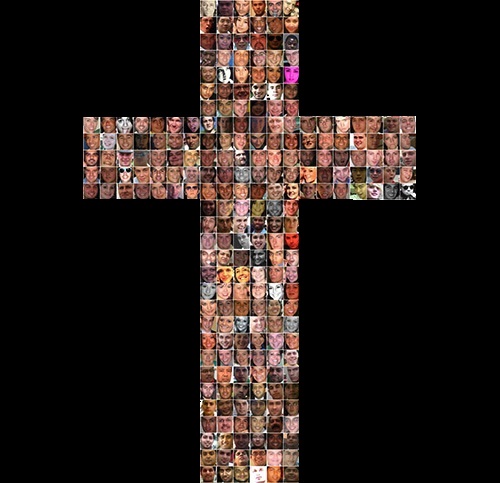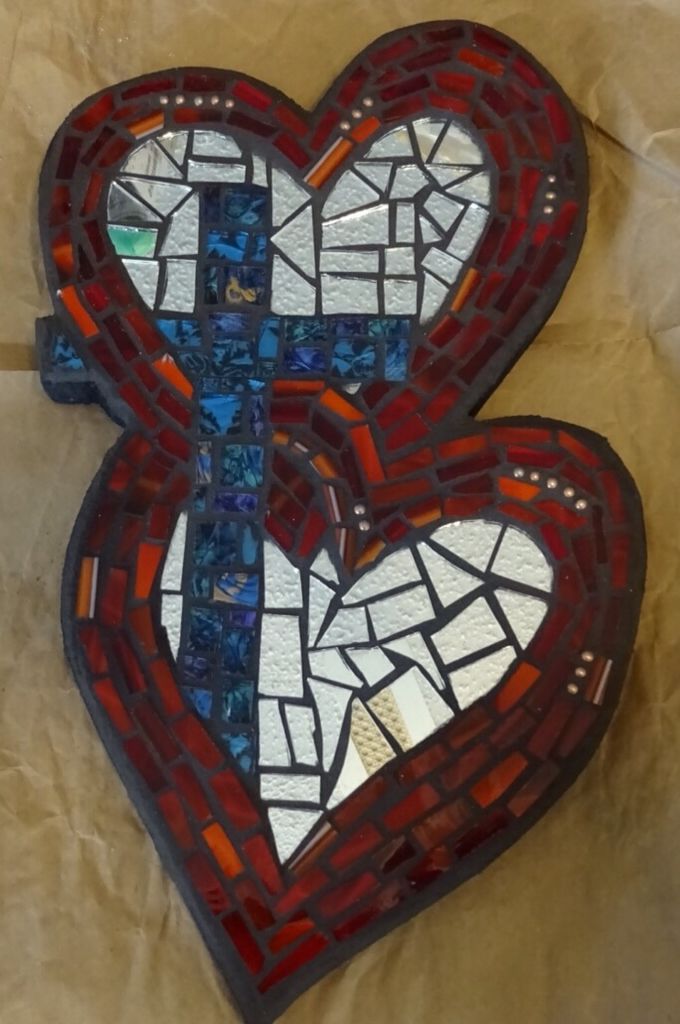
Uniquely Qualified
By Anthony Casperson
6-23-18
Take a look at the mosaic art piece to the right of the title of this blog. (Any non-mass-produced mosaic art can prove the same thing, but specifics will vary.) As you look, I have a question for you.
Which piece is the best one?
Is one of the blue pieces the most special? They make up the image of the cross, and since these blogs have biblical thoughts, could one of them be the best? Or, maybe one of the red pieces? They make up the hearts, representing the love that the cross showcases. Is one of them more special than any other piece? Or maybe one of the mirrored pieces? They reflect our image in the love brought about because of the cross. Is one of them the best?
Maybe trying to figure out exactly which of the pieces is the best is a bit too difficult. Can we ask which group of pieces are the best in this image? Is there something more significant about certain pieces based off of their color, or basic shapes? Are edge pieces better because they bound the whole piece of art? Or does size equate to specialness?
Hopefully by now, you’ve come to realize I’m being facetious. My question can’t be answered. At least not without personal preference coming to bear upon it. And even then, the piece that you might choose is still arbitrary. There’s not a special quality to any one specific piece that would qualify it to be universally viewed as the best.
Don’t get me wrong. Every piece in the mosaic is important. Remove any one piece from the art and it changes. Either all the other pieces need to shift in order to complete the picture (which might even change the desired effect), or a new and somewhat similar piece needs to be added.
Each piece has its own specific shape, shade, and size. None are the same. Each a unique individual. However, that uniqueness doesn’t make one better than another. We can’t rank the pieces, even though every one is unique.
And yet, in the art, each piece must stand where it does or it affects the whole image. They are uniquely qualified to stand where they do because of their shape, shade, and size differences. The uniqueness of the pieces, or even groups of pieces, come to bear as they are shaped to create the work of art that none could be on their own.
Having uniqueness and differences doesn’t make one piece better or more special than any other, and yet they each individually remain important in their uniqueness, even as they join together to make the work of art that the artist desired to create through them.
We can see this in a piece of art. But can we see it in humanity? Can we see that the differences between our genetics, our backgrounds, our mental processes, and every other part of ourselves make us unique, but not better than any other person?
We strive to be special and rank each other based off of some arbitrary measure. One person or group of people believed to be better than another. It causes us to then think that others are lesser or less important. Our desire to know our ranking in the list of the best causes us to forget what’s truly important.
And it’s not a new thing for humanity to do. In Luke 22, we see Jesus teaching the Twelve around the table of fellowship where the Lord’s Supper was instituted. He’s trying to teach them the truth about what’s going to happen over the next few days. And what are they doing while he’s telling them God’s plan for salvation?
They’re arguing about who’s the best among them.
What?! God enfleshed in humanity is pouring out the heart of God before the Twelve and they’re trying to figure out who should’ve had what place at the table? I can’t help but wonder how the conversation actually went.
“Well, Peter, James, and John are the inner three. They’ve been closer to Jesus than any of the other disciples. One of them has to be the best.” “But Peter never would’ve drawn close to Jesus if it hadn’t been for his brother, Andrew. So, is he not better than Peter?” “Jesus came directly to Matthew and asked him to follow. And then quite a few other people were invited to a party where Jesus taught. Certainly many other followers came because of Matthew’s evangelistic efforts. Is he not better than others?” “Judas Iscariot is seated in the place of honor at the meal. He’s gotta be ranked there.”
We could keep going, but I think you get my point.
We lose the equality of importance within every human being when we desire to be considered special. This isn’t to say that certain individuals or groups of individuals aren’t more uniquely qualified to fit within a specific location in the masterful plan of God. But there’s a difference between being unique and being special. A difference between having a specific role that others don’t hold and being considered better for having that role.
The Twelve were uniquely chosen to be the closest followers of Jesus, but none were better than any of the other followers of Jesus. Their uniqueness as Apostles didn’t mean that they had the right to believe themselves as better than anyone else.
Jesus rebukes them in the same chapter of Luke, saying that those outside of the family of God argue like this, lording over each other the ranking system that favors them. But it shouldn’t be like this for the followers of Jesus. He calls them to serve as he had just done by washing their feet.
We are not called to rank ourselves, but to serve in the part of God’s plan where he places us. Our shape, shade, and size make us uniquely qualified to be where he places us, but no single piece or group of pieces are special by comparison.
Let’s stop looking at ourselves, and those who we view to be of similar quality, as if we are the best and everyone else is less. We are all pieces of the mosaic of God’s craftsmanship. Our shape, our shade, and our size were all given to us by our Creator who calls us to fit right where we were uniquely qualified to be.
Which piece is the best? That’s the wrong question to ask. Better to ask, what beautiful image do we make together because of the hand of God?




